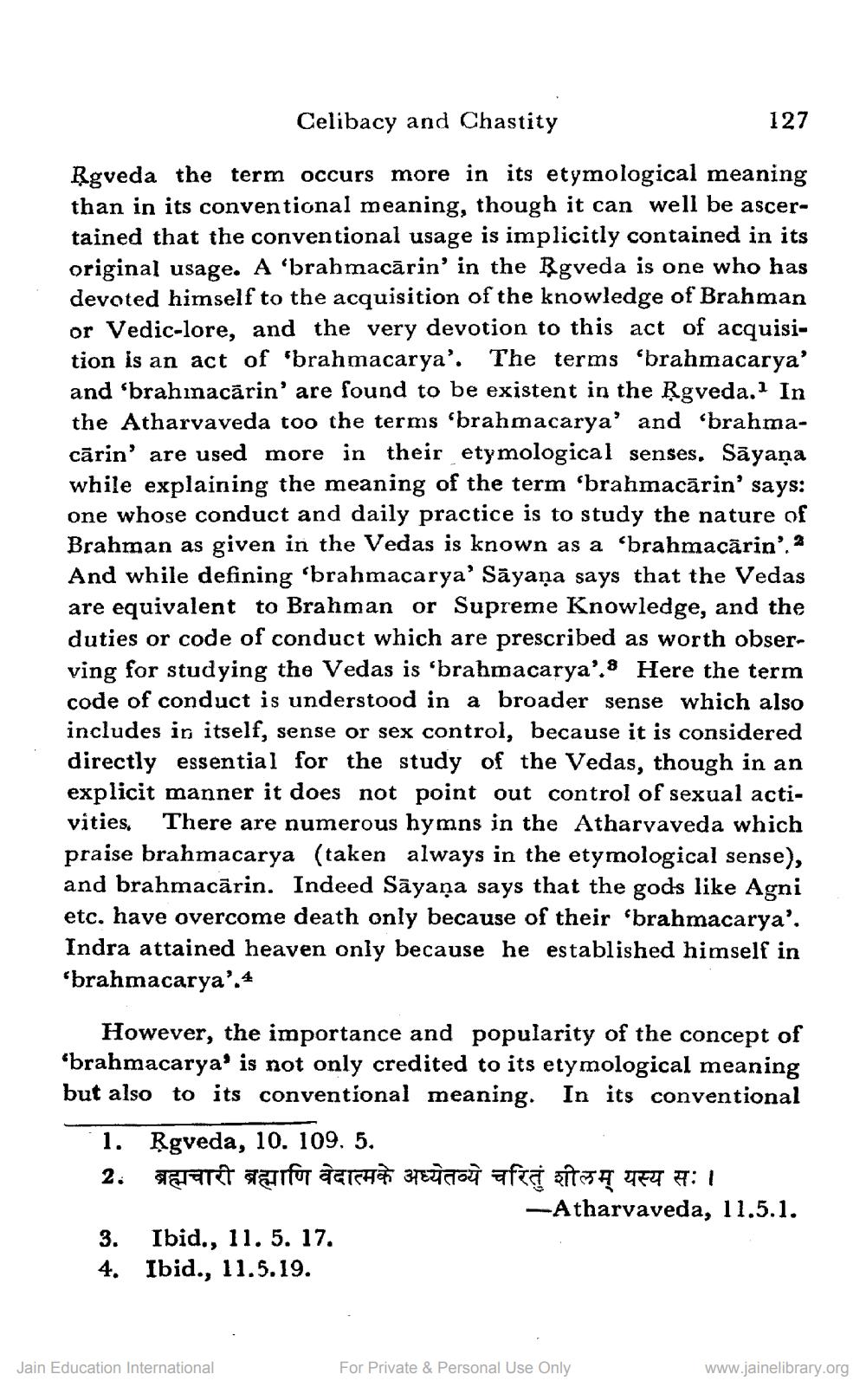________________
Celibacy and Chastity
Rgveda the term occurs more in its etymological meaning than in its conventional meaning, though it can well be ascertained that the conventional usage is implicitly contained in its original usage. A 'brahmacarin' in the Rgveda is one who has devoted himself to the acquisition of the knowledge of Brahman or Vedic-lore, and the very devotion to this act of acquisition is an act of 'brahmacarya'. The terms 'brahmacarya' and 'brahmacarin' are found to be existent in the Rgveda.1 In the Atharvaveda too the terms 'brahmacarya' and 'brahmacarin' are used more in their etymological senses. Sāyaṇa while explaining the meaning of the term 'brahmacarin' says: one whose conduct and daily practice is to study the nature of Brahman as given in the Vedas is known as a 'brahmacârin”. a And while defining 'brahmacarya' Sāyaṇa says that the Vedas are equivalent to Brahman or Supreme Knowledge, and the duties or code of conduct which are prescribed as worth observing for studying the Vedas is 'brahmacarya'. Here the term code of conduct is understood in a broader sense which also includes in itself, sense or sex control, because it is considered directly essential for the study of the Vedas, though in an explicit manner it does not point out control of sexual activities. There are numerous hymns in the Atharvaveda which praise brahmacarya (taken always in the etymological sense), and brahmacarin. Indeed Sāyaṇa says that the gods like Agni etc. have overcome death only because of their 'brahmacarya'. Indra attained heaven only because he established himself in 'brahmacarya'.4
However, the importance and popularity of the concept of 'brahmacarya' is not only credited to its etymological meaning but also to its conventional meaning. In its conventional
1. Ṛgveda, 10. 109. 5.
2.
ब्रह्मचारी ब्रह्माणि वेदात्मके अध्येतव्ये चरितुं शीलम् यस्य सः ।
3. Ibid., 11. 5. 17.
4. Ibid., 11.5.19.
127
Jain Education International
-Atharvaveda, 11.5.1.
For Private & Personal Use Only
www.jainelibrary.org




